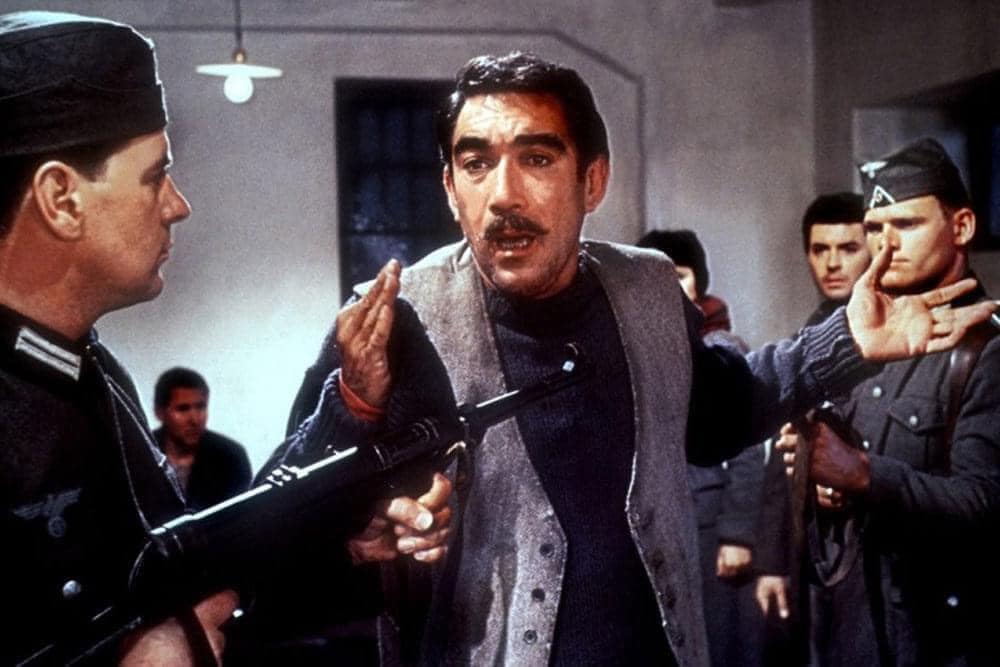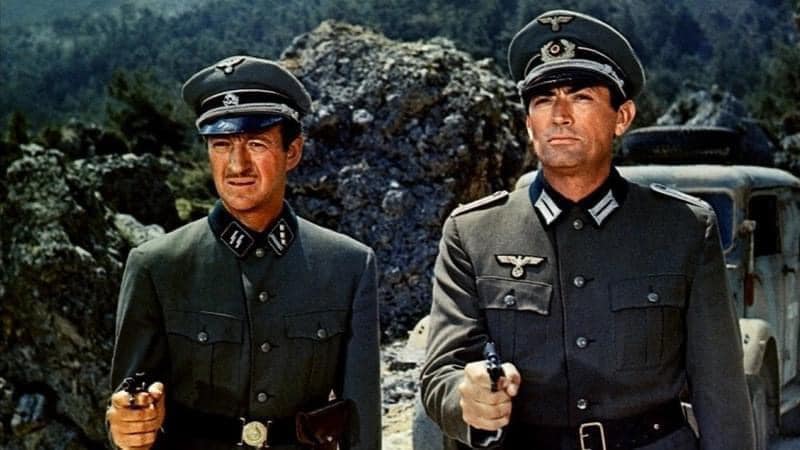“The Guns of Navarone” (1961)

The Guns of Navarone, directed by J. Lee Thompson and based on the novel by Alistair MacLean, is a classic war film that continues to captivate audiences with its thrilling narrative and compelling characters. Released in 1961, this film is set against the backdrop of World War II and revolves around a daring mission to destroy a pair of enormous German artillery guns on the fictional Greek island of Navarone. The story follows a team of Allied soldiers as they embark on a perilous journey to prevent the guns from threatening a vital naval convoy.
Plot Summary:
The plot centers on a mission led by British intelligence to infiltrate the heavily fortified island of Navarone, where two massive guns threaten to decimate Allied ships in the Aegean Sea. The team is led by the seasoned Captain Keith Mallory (Gregory Peck) and includes other skilled operatives such as the explosives expert Colonel Andrea Stavrou (Anthony Quinn) and the sharpshooter Corporal Miller (David Niven). The mission is fraught with danger, as the team faces not only the formidable defenses of the German forces but also the harsh and treacherous terrain of the island itself.
As the mission unfolds, the film explores themes of bravery, sacrifice, and the moral complexities of war. The characters’ personal struggles and the bonds they form provide a deeper emotional resonance, making their quest not just a military operation but a journey of personal redemption and heroism.

Themes and Significance:
- Heroism and Sacrifice: At its core, The Guns of Navarone celebrates the heroism of individuals who put their lives on the line for a greater cause. The film showcases the sacrifices made by soldiers who, despite facing overwhelming odds, persevere in their mission to achieve a critical objective.
- Camaraderie and Leadership: The dynamics between the characters highlight the importance of teamwork and leadership. Captain Mallory’s role as a leader is instrumental in guiding the team through the challenges they face, while the diverse skills and backgrounds of the team members underscore the value of unity in overcoming adversity.
- Moral Ambiguity: The film delves into the moral complexities of war, exploring the difficult choices and ethical dilemmas faced by those involved in combat. The characters are portrayed with depth, showing that their motivations and decisions are shaped by personal and ethical considerations.
- War’s Impact: By focusing on a specific mission within the broader context of World War II, the film provides a poignant reflection on the impact of war on individuals and the sacrifices made by those who serve. It serves as a reminder of the human cost of conflict and the resilience required to confront it.

Legacy:
The Guns of Navarone remains a seminal work in the war film genre, known for its gripping storyline, strong performances, and memorable score by Dimitri Tiomkin. Its influence extends beyond its initial release, continuing to inspire and entertain new generations of viewers. The film’s blend of action, drama, and character-driven storytelling ensures its place as a timeless classic, celebrated for its portrayal of courage and the enduring spirit of those who fight against the odds.











